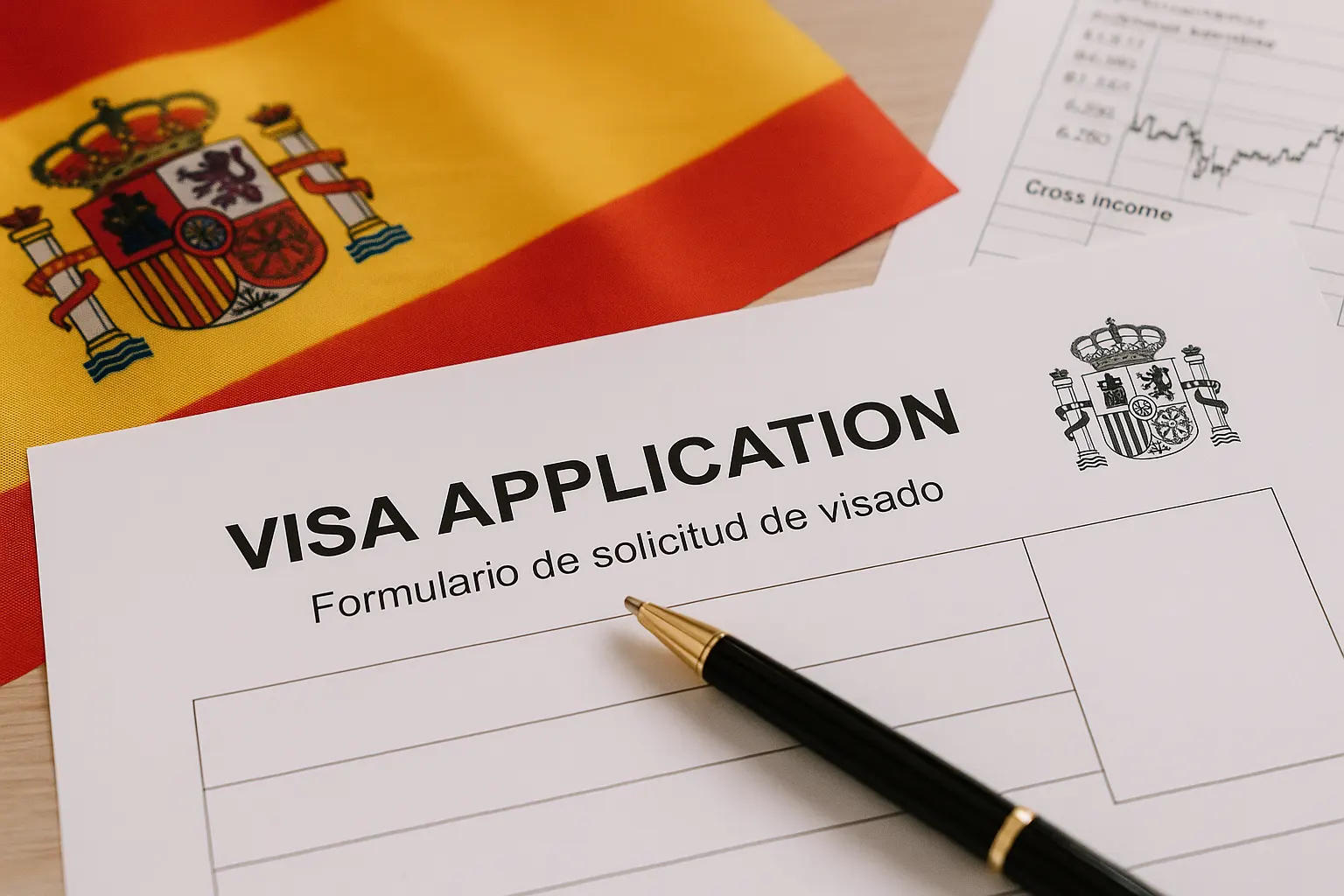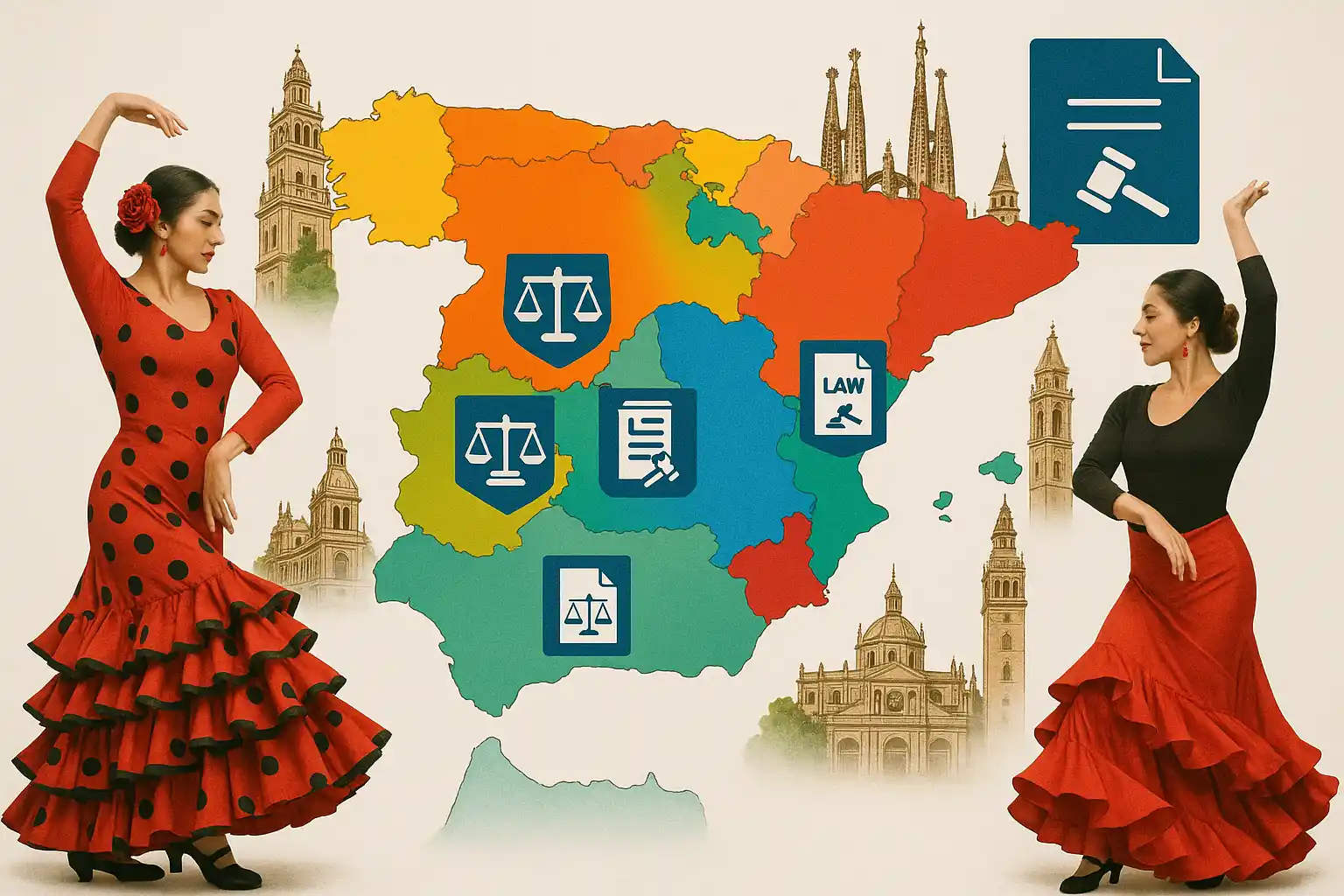Digital nomads, a growing group of remote workers using technology to live and work anywhere, often have questions about their Social Security responsibilities in different countries. Spain, known for its lively culture and friendly atmosphere, is a popular destination for digital nomads looking to combine work and leisure. It’s important for these individuals to understand the implications of Social Security in Spain to ensure they follow local laws.
This article explores the connection between digital nomadism and Social Security in Spain. We’ll discuss the requirements, challenges, and legal factors that affect this unique workforce. Additionally, we’ll cover the Social Security benefits available to expats in Spain, which can be crucial for those considering making Spain their home base.
Understanding the Spanish Digital Nomad Visa
The Spanish Digital Nomad Visa (DNV) is a special residence permit designed to attract remote workers from outside the European Union who wish to live and work legally in Spain. This visa allows digital nomads to reside in Spain while continuing their employment or business activities remotely for companies or clients located abroad.
Eligibility Criteria for the Spanish Digital Nomad Visa
Applicants must meet specific requirements to qualify for the Spanish nomad visa:
- Employment Status: Must be employed by, or provide services to, companies or clients outside Spain.
- Remote Work Proof: Demonstration of the capacity to perform duties remotely using telecommunications technologies.
- Income Requirements: A minimum gross monthly income threshold, often around €2,000 to €2,500, depending on region and consular guidelines.
- No Local Employment: The work performed cannot involve Spanish companies or local clients.
- Health Insurance: Valid health insurance coverage within Spain is mandatory.
- Criminal Record: Clean criminal history from both the country of origin and Spain.
Application Process for the Visa
The process involves several steps:
- Gather Documentation: Includes proof of remote work, contracts with foreign companies, income statements, health insurance, and a valid passport.
- Submit Application: Completed visa applications are submitted at the Spanish consulate or embassy in the applicant’s country of residence.
- Processing Time: Typically ranges from 1 to 3 months depending on consulate workload and applicant circumstances.
- Visa Issuance: Once approved, applicants receive a residence permit valid initially for one year with possibilities for renewal.
The Spain digital nomad visa income requirements and eligibility criteria ensure that applicants maintain financial independence while residing in Spain without competing in the local labor market. This framework supports sustainable remote working lifestyles aligned with Spain’s immigration policies.
The Role of Social Security for Digital Nomads in Spain
Social Security plays a crucial role for digital nomads residing and working in Spain, providing various benefits and ensuring compliance with legal obligations. Here are key points to consider:
1. Importance of Social Security for digital nomads in Spain
- Digital nomads can access healthcare, unemployment benefits, and retirement provisions through Social Security contributions.
- It offers financial security and peace of mind while living and working in Spain.
2. Compliance requirements for social security payments
- Digital nomads are required to make regular contributions to the Spanish Social Security system based on their income.
- Failure to comply with these obligations may lead to legal consequences and loss of access to benefits.
By understanding the significance of Social Security, such as the recent bilateral agreement between the US and Spain on Social Security, and meeting payment requirements, digital nomads can ensure a stable and legally compliant lifestyle while enjoying the benefits of living in Spain under the digital nomad visa program. For more detailed guidance on how foreign freelancers can register for Seguridad Social in Spain and access its benefits, you may refer to this resource on Seguridad Social in Spain as a Foreign Freelancer.
Tax Implications and Residency Rules for Digital Nomads in Spain
Understanding tax obligations is crucial for digital nomads working remotely in Spain. The determination of tax residency plays a central role in defining these responsibilities.
Tax Residency Rules
- 183 Days Rule: Individuals who spend more than 183 days within a calendar year in Spain are generally considered tax residents. This status obligates them to declare and pay taxes on their worldwide income.
- Center of Economic Interests: Even if the 183-day threshold is not met, having the primary base or center of economic activities and interests in Spain can establish tax residency.
- Beckham Law: This special regime applies to certain foreign workers relocating to Spain. It offers a favorable tax rate (24% up to €600,000 income) for a limited period, typically six years. Eligibility requires meeting specific criteria, such as not having been tax resident in Spain during the previous ten years.
Income Tax Obligations for Residents
Residents must comply with Spanish personal income tax (Impuesto sobre la Renta de las Personas Físicas – IRPF) regulations:
- Declaration of global income, including earnings from foreign sources.
- Progressive tax rates apply, ranging approximately from 19% to 47%, depending on income level and autonomous community.
- Digital nomads classified as employees or workers under Spanish labor law may have withholding taxes applied by companies paying them.
- Self-employed digital nomads must register with Spanish tax authorities and submit quarterly VAT and income tax returns.
The question “Do digital nomads pay Social Security in Spain?” intertwines with these tax rules since Social Security contributions often depend on employment status and residency classification. Proper legal guidance is necessary to navigate these overlapping obligations effectively.
Challenges Faced by American Digital Nomads in Spain and the Totalization Agreement’s Impact on Them
American digital nomads in Spain face specific challenges related to Social Security compliance and payments, such as:
- Understanding the complexities of Social Security regulations in a foreign country.
- Dealing with dual taxation issues between the US and Spain.
- Making sure they have the right documentation and reporting for both countries.
The Totalization Agreement between Spain and the US aims to address these challenges by providing guidelines for Social Security coverage for individuals who have worked in both countries. Here are some key points about the Totalization Agreement:
- Eligibility for benefits is determined by looking at contributions made in each country.
- It prevents double Social Security taxation.
- Benefit payments are streamlined for individuals who have worked in both the US and Spain.
This agreement offers reassurance to American digital nomads working in Spain, ensuring they receive the Social Security benefits they deserve while avoiding unnecessary financial burdens.
Options and Legal Methods for Social Security Compliance While Working Remotely in Spain
As a digital nomad working remotely in Spain, it’s crucial to ensure compliance with the country’s Social Security regulations. Here are some options and legal methods you can consider:
1. Register as an Autónomo (Self-Employed)
Digital nomads can register as self-employed individuals in Spain to contribute to the Social Security system. This option allows them to comply with the legal requirements while working remotely.
2. Utilize Bilateral Social Security Agreements
Some countries have bilateral agreements with Spain regarding Social Security. Digital nomads from these countries can leverage these agreements to fulfill their Social Security obligations without double contributions.
3. Private Health Insurance
In some cases, digital nomads may opt for private health insurance coverage that meets the requirements set by the Spanish government. This can be a viable alternative to contributing directly to the Spanish Social Security system.
4. Consultation with Legal Experts
Seeking advice from legal professionals specializing in immigration and labor laws in Spain can provide digital nomads with tailored solutions for Social Security compliance while working remotely.
By exploring these options and understanding the legal methods available, digital nomads in Spain can navigate the complexities of Social Security compliance effectively while continuing their remote work activities.
Conclusion
Understanding whether digital nomads pay Social Security in Spain requires careful consideration of residency status, visa type, and bilateral agreements. Key insights include:
- Digital nomads with the Spanish Digital Nomad Visa must evaluate their Social Security obligations based on work arrangements and nationality.
- American nomads face unique challenges mitigated by the Totalization Agreement between Spain and the US.
- Multiple legal pathways exist to ensure compliance, emphasizing personalized advice and proactive planning.
Take action: Consult specialized immigration lawyers or tax advisors experienced with Spain’s digital nomad framework to navigate Social Security requirements effectively and avoid unexpected liabilities














